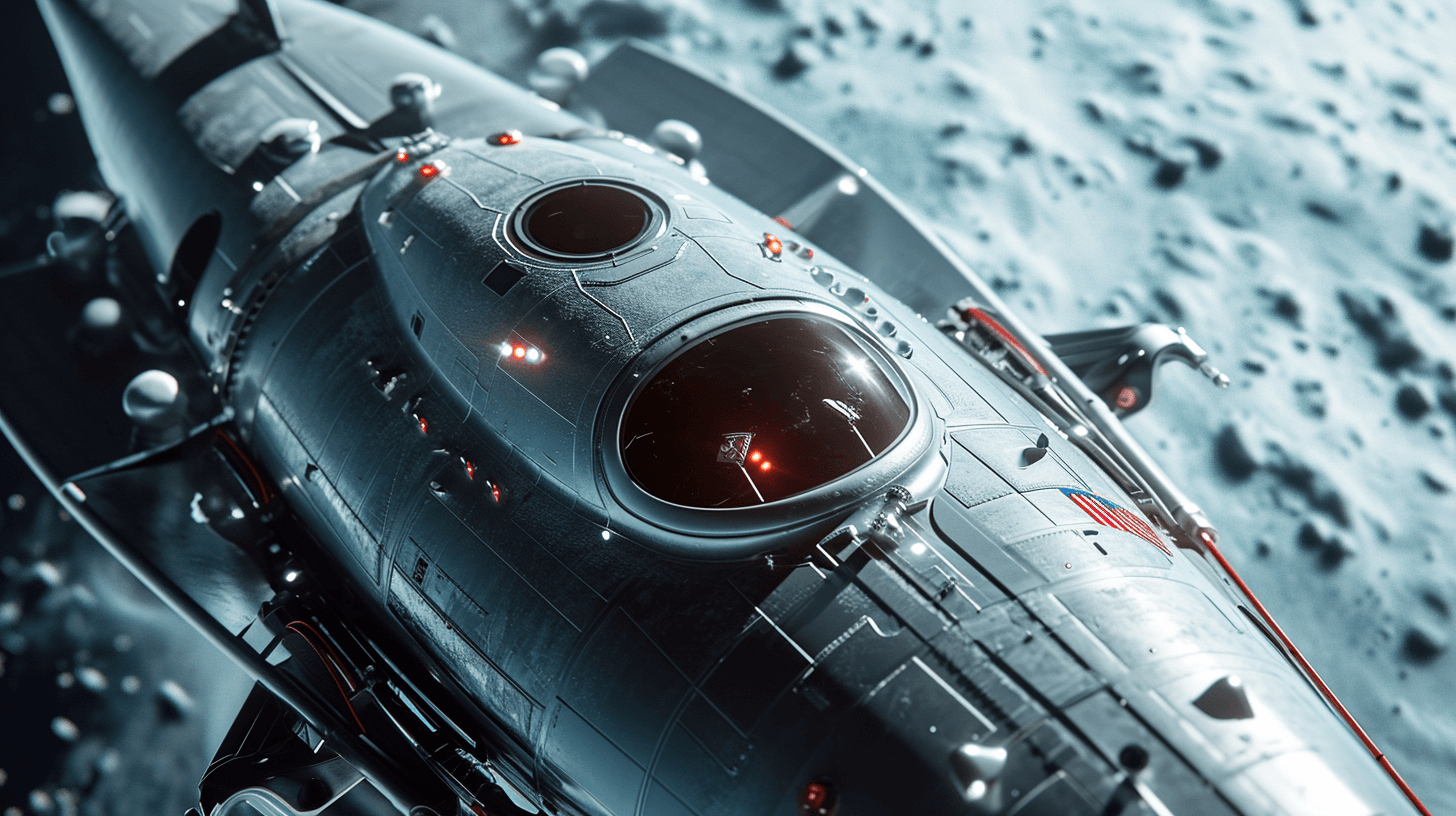SpaceX’s Ax-3 Mission to the ISS Delayed by One Day
⬇️ Pidgin | ⬇️ ⬇️ English
We gotta wait one mo’ day fo’ SpaceX’s launch of da next private astronaut mission!
SpaceX wen tell us on Wednesday (Jan. 17) dat da launch of Axiom Space’s Ax-3 mission to da International Space Station (ISS) got one delay, and now it’s set fo’ 4:49 p.m. EST (2149 GMT) on Thursday (Jan. 18). Dis mission going take off from NASA’s Kennedy Space Center in Florida.
Da company wen announce da delay in one post on X (used to be Twitter), and dey say da delay “allows teams to complete pre-launch checkouts and data analysis on da vehicle,” and dis time da vehicle is one Falcon 9 rocket wit one Crew Dragon spacecraft.
Wen da time come, you can watch da launch hea at Space.com, we go get livestreams from NASA, SpaceX, and Axiom Space, one Houston-based company. Coverage going start at 2:30 p.m. EST (1845 GMT) on Jan. 18. 🚀🛰️
Related: Meet da 4 astronauts of SpaceX’s Ax-3 launch for Axiom Space
Da SpaceX Falcon 9 rocket and Crew Dragon spacecraft stay ready fo’ da launch of Axiom Space’s Ax-3 mission to da International Space Station. (Image credit: SpaceX via X)
Da Ax-3 mission going take one four-person, all-European crew to da ISS. Da crew going be led by Ax-3 mission commander and one former NASA astronaut, Michael “LA” López-Alegría, ’cause NASA rules say private crewed missions to da ISS gotta have one former agency astronaut in charge.
Da odda three crew members stay mission specialist Walter Villadei, who wen fly aboard Virgin Galactic’s Galactic 01 suborbital spaceflight in June 2023, European Space Agency astronaut reserve member Marcus Wandt, and Turkey’s first astronaut, Alper Gezeravcı. (López-Alegría, he one citizen of both da U.S. and Spain, so das why we calling ’em “all-European.”)
Da crew going spend ’bout two weeks up dea on da ISS doing mo’ than 30 science experiments, dat what Axiom Space tell us.
“Data collected on ground before and after da mission as well as in flight going help us undastand human physiology on Earth and on orbit, and going advance scientific undastanding, create chances fo’ industrial advancements, and develop technologies fo’ humanity’s progress,” da company wen say in da mission description.
Da crew of Axiom Space’s Ax-3 mission. From left: Marcus Wandt, Michael López-Alegría, Walter Villadei, and Alper Gezeravcı. (Image credit: Axiom Space)
Da Crew Dragon spacecraft dat going fly to da ISS fo’ dis mission, dey call ’em Freedom, and he wen carry astronauts to and from da orbital lab on two previous missions: NASA’s Crew-4 in 2022 and Axiom Space’s Ax-2 in May 2023.
Like da name say, dis da third private mission flown by Axiom Space. Da company stay trying fo’ build one booming economy up dea in low Earth orbit, by doing both private astronaut missions to da ISS and one day making dea own private space station. 🌍🚀
Brett stay curious ’bout da new technologies coming up, alternative ways to launch stuff, anti-satellite technologies, and dem uncrewed aircraft systems. Brett wen write fo’ Scientific American, The War Zone, Popular Science, da History Channel, Science Discovery, and mo’. Brett wen get English degrees from Clemson University and da University of North Carolina at Charlotte. 🚀📡🔭
NOW IN ENGLISH
SpaceX’s Ax-3 Mission to the ISS Delayed by One Day
We have to wait one more day for SpaceX’s launch of the next private astronaut mission!
SpaceX announced on Wednesday (January 17) that the launch of Axiom Space’s Ax-3 mission to the International Space Station (ISS) has experienced a delay, and now it’s scheduled for 4:49 p.m. EST (21:49 GMT) on Thursday (January 18). This mission will take off from NASA’s Kennedy Space Center in Florida.
The company announced the delay in a post on Twitter (formerly known as X), stating that the delay “allows teams to complete pre-launch checkouts and data analysis on the vehicle,” and this time the vehicle is a Falcon 9 rocket with a Crew Dragon spacecraft.
When the time comes, you can watch the launch here on Space.com. We will have live streams from NASA, SpaceX, and Axiom Space, a Houston-based company. Coverage will begin at 2:30 p.m. EST (18:45 GMT) on January 18.
Related: Meet the 4 astronauts of SpaceX’s Ax-3 launch for Axiom Space
The SpaceX Falcon 9 rocket and Crew Dragon spacecraft are ready for the launch of Axiom Space’s Ax-3 mission to the International Space Station. (Image credit: SpaceX via X)
The Ax-3 mission will take a four-person, all-European crew to the ISS. The crew will be led by Ax-3 mission commander and former NASA astronaut Michael “LA” López-Alegría, as NASA rules require private crewed missions to the ISS to have a former agency astronaut in charge.
The other three crew members are mission specialist Walter Villadei, who flew aboard Virgin Galactic’s Galactic 01 suborbital spaceflight in June 2023, European Space Agency astronaut reserve member Marcus Wandt, and Turkey’s first astronaut, Alper Gezeravcı. (López-Alegría holds citizenship in both the U.S. and Spain, hence the “all-European” reference.)
The crew will spend approximately two weeks on the ISS conducting more than 30 science experiments, as stated by Axiom Space.
“Data collected on the ground before and after the mission, as well as in flight, will help us understand human physiology on Earth and in orbit, advance scientific understanding, create opportunities for industrial advancements, and develop technologies for humanity’s progress,” the company said in the mission description.
The crew of Axiom Space’s Ax-3 mission. From left: Marcus Wandt, Michael López-Alegría, Walter Villadei, and Alper Gezeravcı. (Image credit: Axiom Space)
The Crew Dragon spacecraft that will fly to the ISS for this mission is named “Freedom,” and it has carried astronauts to and from the orbital lab on two previous missions: NASA’s Crew-4 in 2022 and Axiom Space’s Ax-2 in May 2023.
As the name suggests, this is the third private mission flown by Axiom Space. The company is working to build a thriving economy in low Earth orbit by conducting private astronaut missions to the ISS and eventually establishing their own private space station.
Brett is curious about the new technologies emerging, alternative methods of launching payloads, anti-satellite technologies, and unmanned aircraft systems. Brett has written for Scientific American, The War Zone, Popular Science, the History Channel, Science Discovery, and more. Brett holds English degrees from Clemson University and the University of North Carolina at Charlotte.







